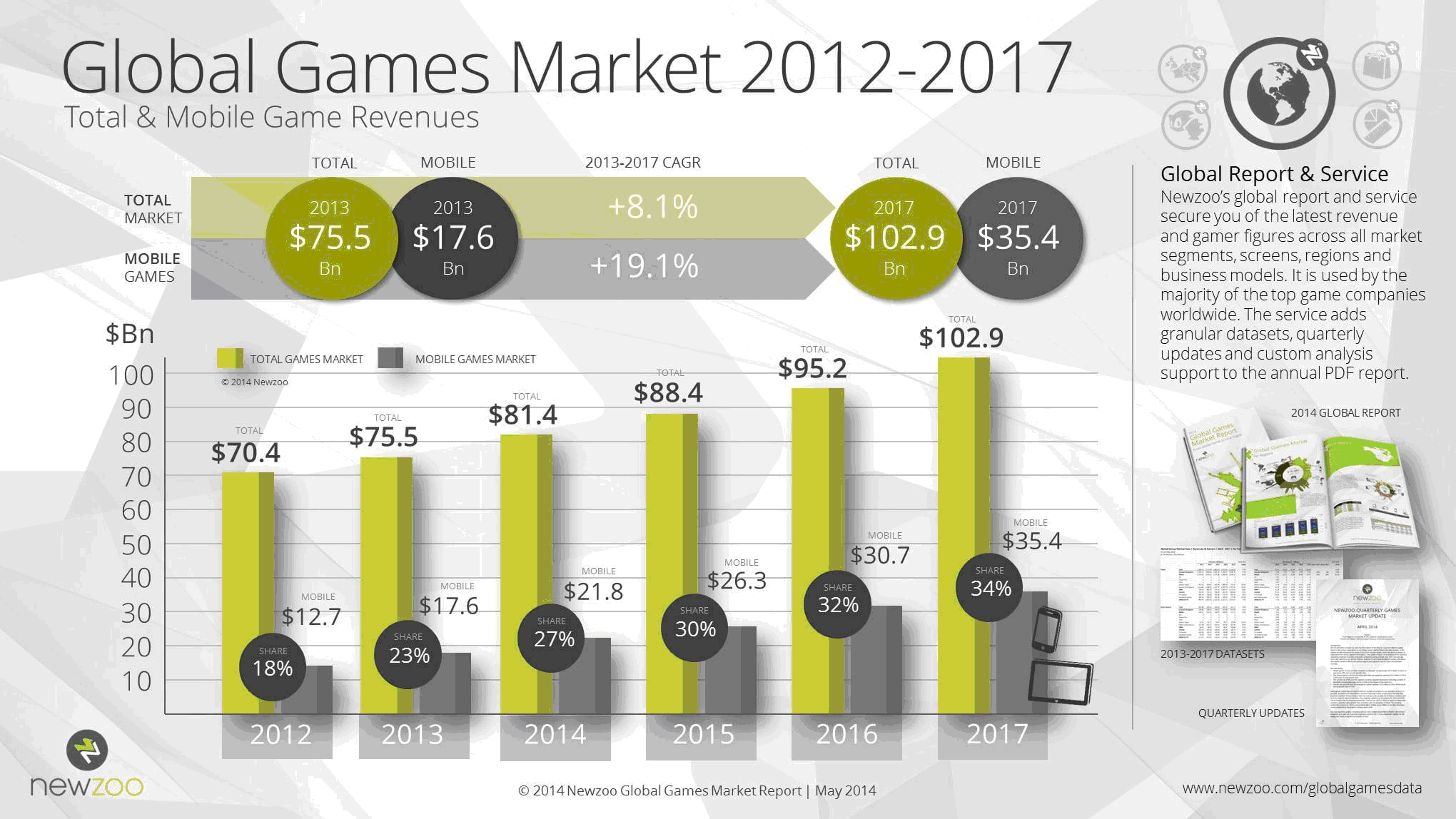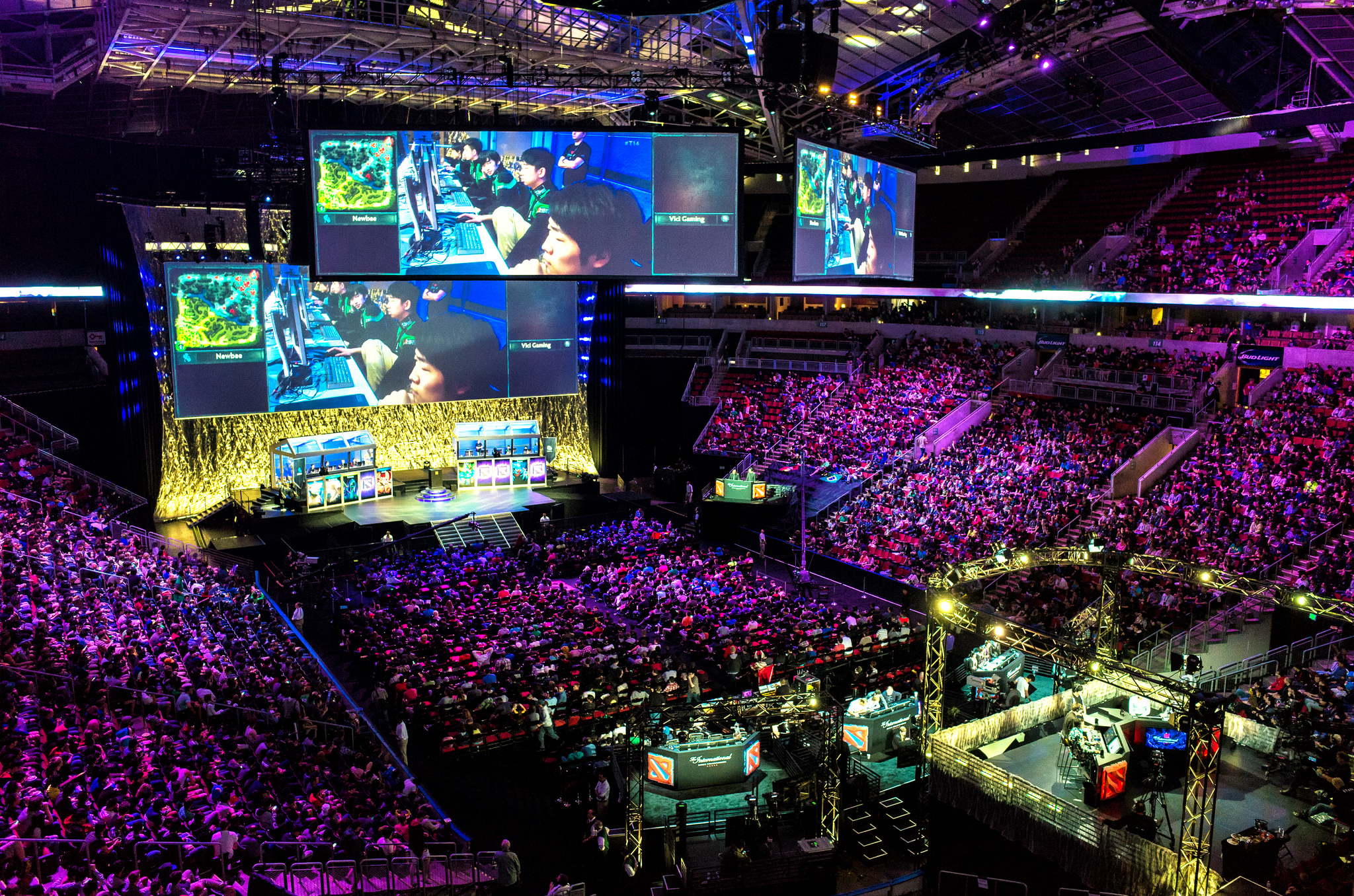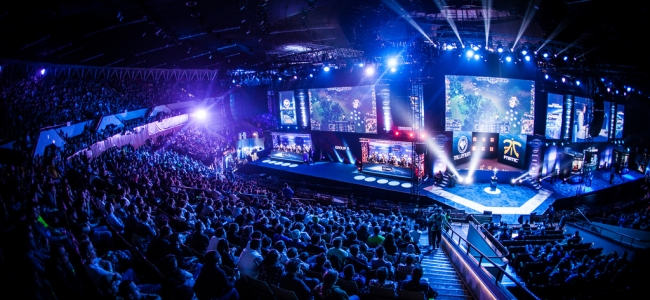There was a time not so long ago that video games were considered something that you grew out of in your teens. Thankfully, those days are long gone, and the worldwide gaming industry is booming with active gamer numbers reaching dizzying heights. But with the boom comes the inevitable monetization of the industry. So, what does that mean for the future? And will gaming ever become a respectable career choice?
Caption: The gaming industry boom since 2012. | Image Credit: Newzoo.com
The Start of Money in Gaming
Gaming has a long and illustrious past filled with classic titles, arcade memories and of course, gaming tournaments. Since the first Spacewar! tournament in 1972, there have been thousands of tournaments held all over the world. But even so, the idea of money and gaming for the average person is a relatively new one.
In 1998, the first online poker game was held and to say it opened the floodgates would be something of an understatement, but we’ll get to poker later. During this period, people started to realize that gaming didn’t necessarily mean sitting at home with Street Fighter II or Donkey Kong. Online gaming began to flourish and with it came money.
Previously, the only real way to monetize a game was through sales and perhaps merchandise (Nintendo were and still are the masters at this). But with online gaming and esports gaining traction, things were starting to look even better for gaming companies. Now they had something akin to a marketer’s dream with pro gamers fueling others’ appetites for the top titles, and that’s another one we’ll come back to later. First, what about games that pay cash?
Games That Pay the Player
Strangely enough, in a world where money and gaming are becoming intrinsically linked to one another, there are few games out there that offer gamers cash rewards for gameplay. A couple of the top ones are Exodus 3000 and Second Life. Exodus 3000 has been around for quite some time (as is evident from their dated homepage) and still commands a small but loyal following who trade in Mars Dollars.
Second Life, on the other hand, is an RPG of sorts that has over two million registered users. The top story of this game is that of Anshe Chung, an avatar whose online real estate holdings could be legally converted into over a million dollars. Of course, this is an exceptional case, and the fact that we’re still talking about it so many years later proves how much of an anomaly she is.
Image Credit: Flickr
Caption: An elaborate wedding in Second Life.
For regular online players who don’t possess the real estate acumen of an Asian avatar or the gaming skills of a pro gamer, there’s only one way to play for money online, and that’s online casinos or to be more precise, online poker.
Online Casinos
Now if you think that online casinos aren’t such a big deal in comparison to their real-world counterparts, then you’d better think again. The industry is booming and has steadily grown in market value over the last decade. And at the head of that boom is the game of poker. Enter sites like 888Poker that offer a wide range of poker games from which to choose. And with an estimated 100 million online poker players across the globe, the demand is there, obviously.
In fact, many players qualify for live events through online satellites and the most recent winner of the World Series of Poker (WSOP), Scott Blumstein, did just that. He spent years grinding away in online poker rooms before playing and winning his first live event, the WSOP.
Without a doubt, there’s a growing trend that sees casino players opting for online games instead of their real-world counterparts. Perhaps it’s a matter of convenience or one of comfort, but either way, games such as online poker are showing us that the world of online gaming is fast becoming intertwined with cold hard cash.
Pro Gaming
While online poker and related casino games may have the edge in money won by regular players, the pro-gaming circuit is the niche that is likely the most popular. Anyone with even a passing interest in games such as Overwatch and Counter-Strike will know that if you’re good at these games, and we mean good, you can make some serious money.
Caption: The massive crowds at The International 2014. |Image Credit: Dota 2 The International
The fact that there is even an argument over which city is the capital of gaming says it all. Places like Seoul and Cologne produce pro gamers for fun while there are pro teams from all over the world that vie for the title of the world’s best each year at The International. And you know these guys don’t play for free.
Esports are taking over and breaking into the mainstream and in the process, making a mockery of so many parents’ assertions that their kids would never amount to anything playing video games. Some might even say that we’re witnessing the dawn of a golden age of gaming. A time when gaming skills are rightfully appreciated as much as athletic prowess. The fact that gamers can now make good money from their passion only adds more credence to this school of thought.
So, what about the future?
As we mentioned, the public is slowly coming to the realization that gaming is not a nerdy or geeky thing to do — at least in a negative sense. It’s fun, sometimes easy and now, we have the possibility of making money at it. Unfortunately, it will be some time before professional gamers will be seen in the same light as footballers or chess players, but the fact is that the change in attitude is already underway.
However, do we see gaming for money as a thing for the future? No. Pro gamers will continue to earn a paycheck for bringing select titles to the attention of millions of fans, but just as you don’t get paid to play touch football down at the park, you won’t get paid to play Donkey Kong at the arcade. For the average person, gaming for money is confined to online casinos and poker for the time being, and we honestly can’t see it changing much in the future. Now enough of all this money talk, time to get back to some Overwatch.









![[Rumor] Chrono Trigger remake or remaster could already be in development](https://vgleaks.com/wp-content/uploads/2026/02/chrono-trigger-150x150.jpg)


![[Rumor] The Game Awards 2026: GTA 6 Might Not Make It In Time](https://vgleaks.com/wp-content/uploads/2026/02/GTA6-awards-150x150.jpg)

